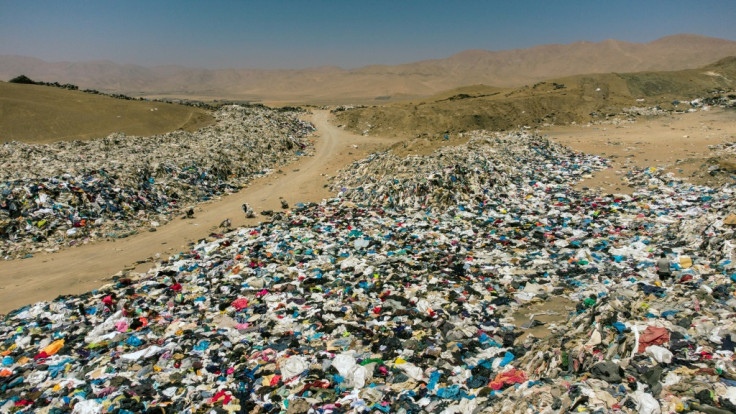Piles of UK's discarded clothing wash up in Ghana's beaches
Around 15 million used garments arrive in Ghana every week from Western countries like the UK.
Piles of discarded unwanted clothes have been washing up on the beaches of Ghana, creating an environmental catastrophe. New images that have emerged show beaches in the capital city of Accra strewn with a shocking amount of clothes from Western nations.
Around 15 million used garments arrive in Ghana every week from the UK, the rest of Europe, North America, and Australia. But an estimated 40% of these clothes end up in landfills.
According to a report by environmental sustainability charity WRAP, around 70% of the UK's discarded clothes from retail and charities are sent to countries like Ghana. However, most of these clothes are of such poor quality that they cannot be reused or repurposed.
Some of these clothes are made of polyester and synthetic materials that choke up canals and rivers and prove to be a threat to marine life.
Ghanaians call these clothes Obroni Wawu, or "Dead White Man's Clothes." The country's local markets are drowning under the weight of these low-quality clothes produced by fast fashion brands. These clothes first end up in landfills and then travel all the way to the oceans.
"You go even near water bodies, you realize that as rainfall and erosion happen, [they carry] a lot of these second-hand clothing wastes towards our water bodies," an environmental activist told DW.
"Those who drink from these bodies [of water] downstream might not be drinking just water but chemicals," he added.
In an interview with DW earlier this year, UN Goodwill Ambassador Roberta Annan said that this is a disaster in the making for marine life.
"You can't take it out. You have to dig. It's buried. It's stuck. Some of these clothes are polyester and, I would say, synthetic fabrics that also go into the waterway and choke the fish and marine life in there," Annan said.
Despite the myriad of issues, Ghana's government has failed to take any major steps to come up with a solution to the problem. However, countries like Rwanda have taken a more proactive approach and banned second-hand clothes import.






















